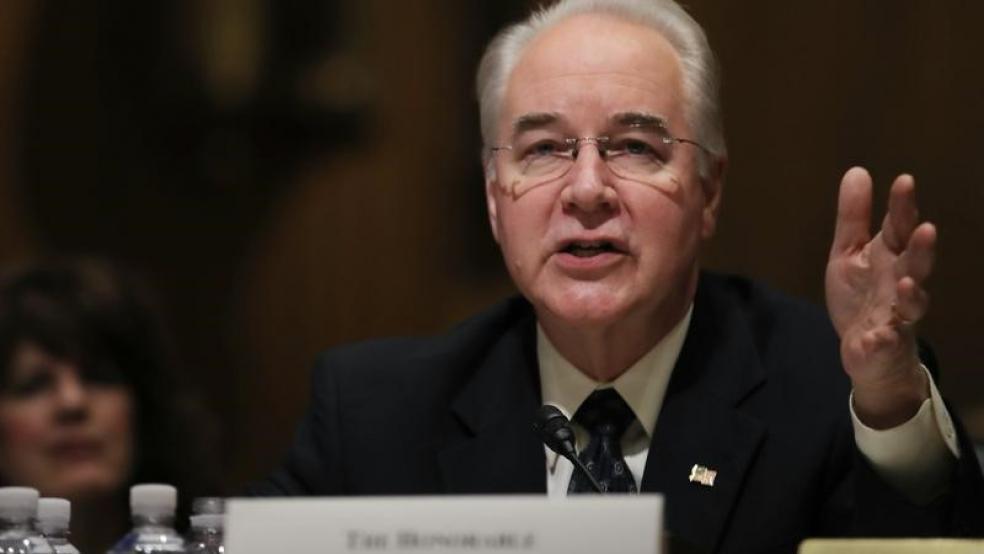Here’s a headline bound to make a fiscal conservative blanch: “Tom Price decides he doesn’t want Medicare to save money.”
That’s the headline on a Washington Post editorial today taking Health and Human Services Secretary Tom Price to task for a recent decision that is likely to cost taxpayers a bundle.
The Centers for Medicare and Medicaid Services last month unveiled a proposal to cancel some pilot programs initiated under the Obama administration in an effort to bring down costs for specific medical procedures and treatments.
The idea behind the experiments was to lower Medicare spending by paying hospitals and doctors a fixed amount for treating, say, patients with heart attacks or hip fractures. Those fixed fees, known as bundled payments, would replace the current system in which providers are paid for each individual element of the care they give patients. Hospitals would thus be motivated to keep the cost of their care in check so that it didn’t exceed the fees Medicare paid.
Like What You're Reading? Sign Up for Our Free Email Newsletter
The new model appeared to be working. A study published earlier this year in JAMA Internal Medicine found that an HHS bundled payment program for joint replacement surgeries saved $5,577, or about 21 percent, per "episode." But HHS Secretary Price, who was an orthopedic surgeon, scaled back the joint replacement program and canceled a planned expansion of the mandatory bundled payments experiment to other treatments and procedures.
Last year, as a member of Congress, Price wrote a letter to the Center for Medicare and Medicaid Innovation asking that all mandatory bundled payment initiatives be scrapped. “Medicare providers and their patients are being forced into high-risk government-dictated reforms with unknown impacts,” he wrote.
But critics of Price’s decision, including the Post’s editorial board, argue that it will continue wasteful spending and is the wrong approach at a time when the country must cope with high health care costs that are only projected to climb as the Baby Boom generation reaches its senior years. “Think about how much federal money will be wasted under Mr. Price next time you are stuck in traffic or your child’s school needs new books,” the Post editorial board writes.
Read the full editorial here.





